Copyright of Columbia Pictures.
Waterloo is a film I’ve put off reviewing for a long time. I have mixed feelings towards it to say the least. On one hand, it is an astounding technical achievement with accuracy and scope the likes of which we will never see again on film. It bolsters some great performances, an amazing musical score, and features some truly riveting cinematography. Despite this, the film falls short of delivering a satisfying experience due to pacing issues, editing, and no real protagonist to root for. It is by no means a bad film, but fails to live up to its potential as an epic historical feature.
Brief Production Background
I won’t go into the real-world history behind Waterloo. Although I’m a history buff and consider the French Revolution and Napoleonic Era is one of my favorite periods in world history, there’s way too much to cover here. If you’re interested in learning about Napoleon and the events leading up to the Battle of Waterloo, I highly recommend watching a 4-part PBS documentary on Napoleon’s life. It’s narrated by David McCullough and is on YouTube.
Waterloo’s production began in the late 1960s when producer Dino De Laurentiis, who had trouble financing the film America, stuck a deal with the Soviet Union and Mosfilm, a Soviet film studio. I’ll link another article that delves further into the film’s production. The short version is De Laurentiis and his cast of American, Canadian, and British actors made the movie for 28 weeks in Ukraine. As part of the deal, the entire crew was made of Soviets, including director Sergei Bondarchuk. With permission from the USSR, the production team used 15,000 soldiers from the Red Army as extras. They bulldozed a field and two hills, built several roads, transplanted thousands of trees, and irrigated the ground to produce mud to recreate an authentic battlefield for the second half of the film.
A few scenes, mostly those in the film’s first hour, were shot in Italy. Between the two filming locations and the great care taken to faithfully reproduce the battle, the film wrapped production under a tidy sum of nearly $40 million. It was one of the most expensive films ever made at the time.
Review
Let’s start with the musical score by Nino Rota. It’s our introduction to the movie, and as my generation would say, it “slaps.” The music that accompanies the opening crawl is breathtaking to say the least. Rota's score is epic and makes great use of Les Marseilles and other songs of the era. He ramps these 18th-19th Century melodies up to eleven to create the massive scope and scale needed for the battle scenes. The best tracks are the opening crawl and Ney’s cavalry charge.
I’m not going to spend too much time on the second half of the film, which is mostly the Battle of Waterloo itself, because I don’t have anything new to add. All the other reviews I’ve read online go into detail about how amazing the reenactment is, so go find those if you want to read about grand scale.
All I can say about the battle scenes is that they are quite possibly the most monumental thing I’ve ever seen on film. The second of half of the film is a sight to behold, but I feel the first half gets overlooked. Yes, it’s not as epic as the Battle of Waterloo, but there are just as many great shots, particularly the scenes of Napoleon saying goodbye to the Old Guard, Napoleon’s return to France where he confronts Ney’s army, and their triumphal return to Paris. The thousands of extras are utilized spectacularly in those early scenes.
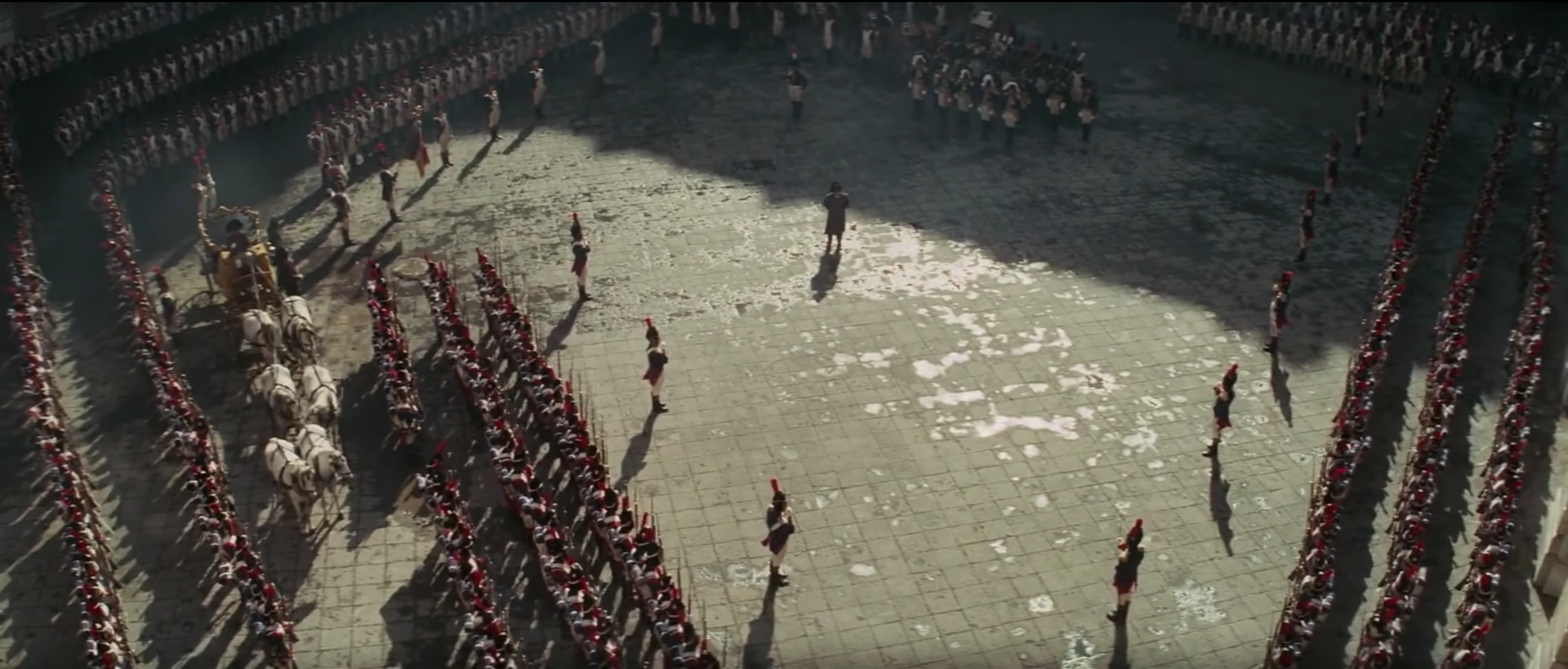
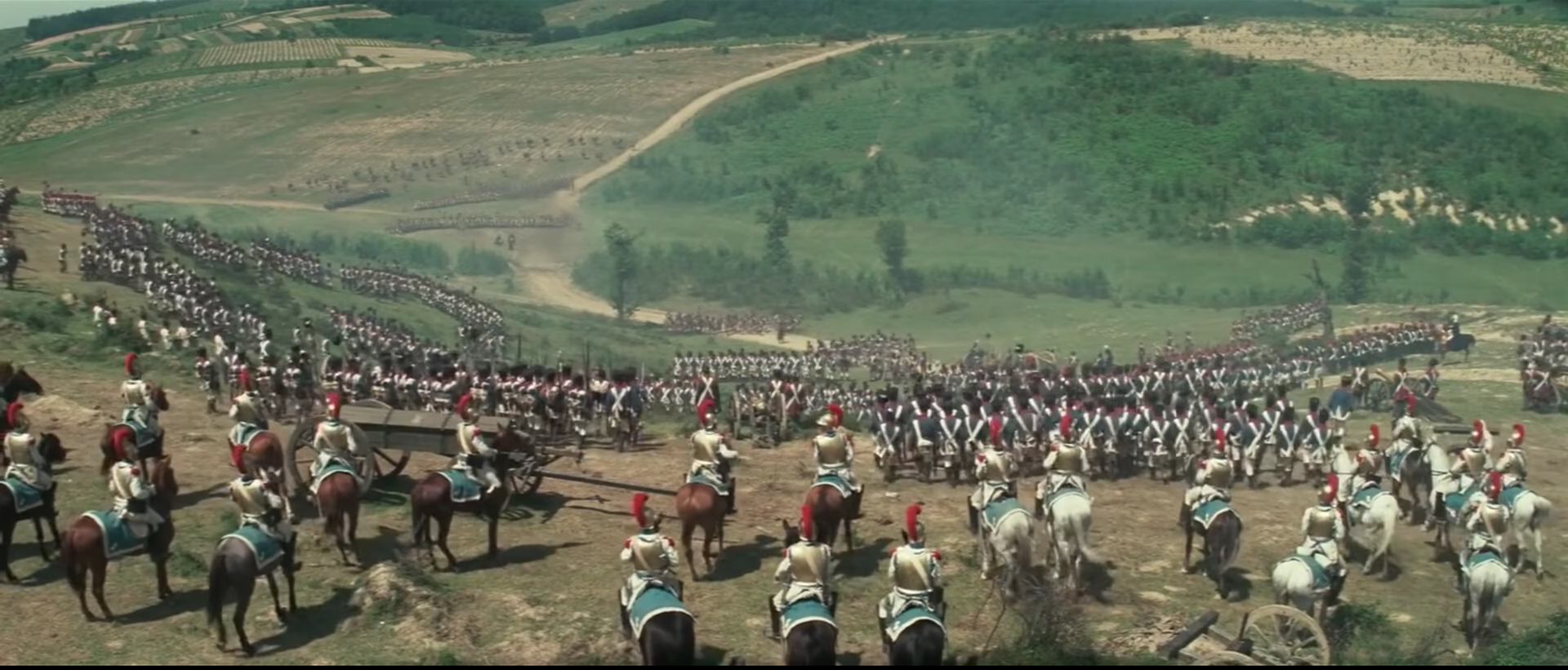
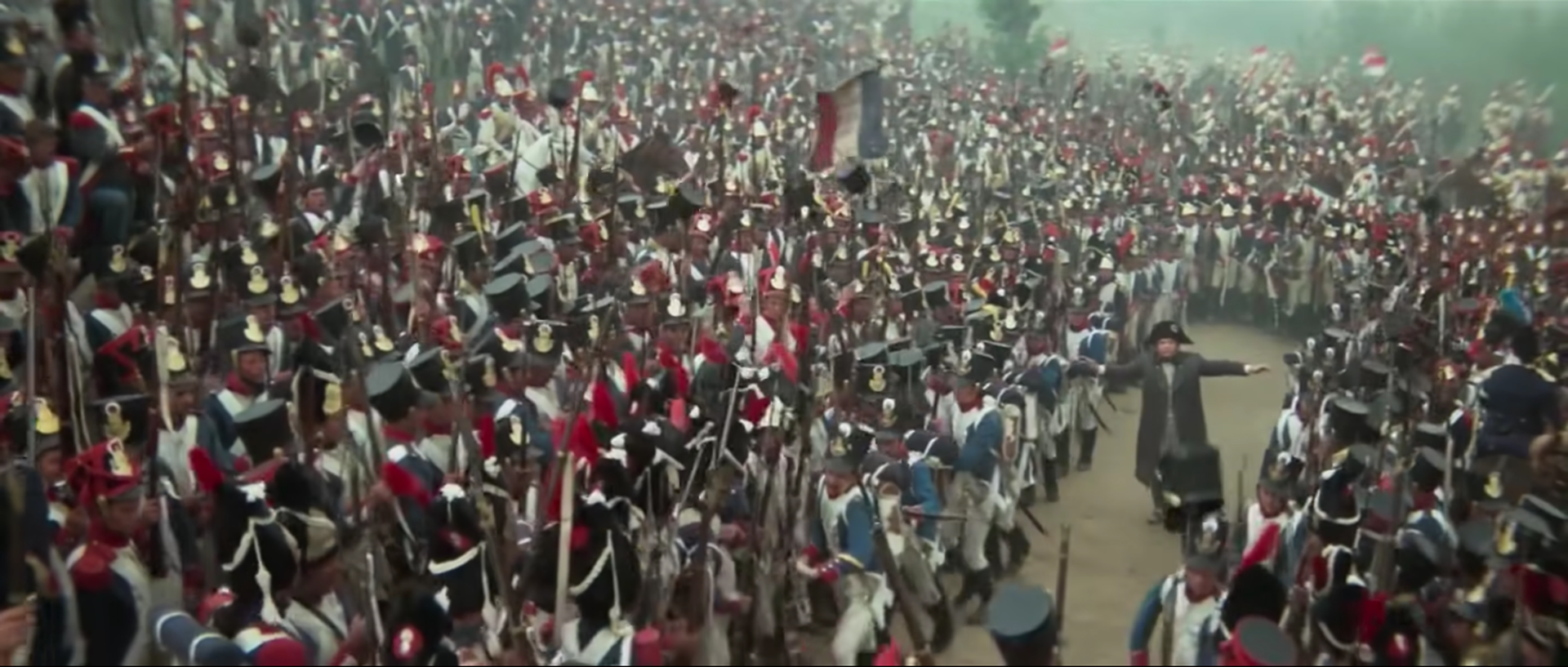
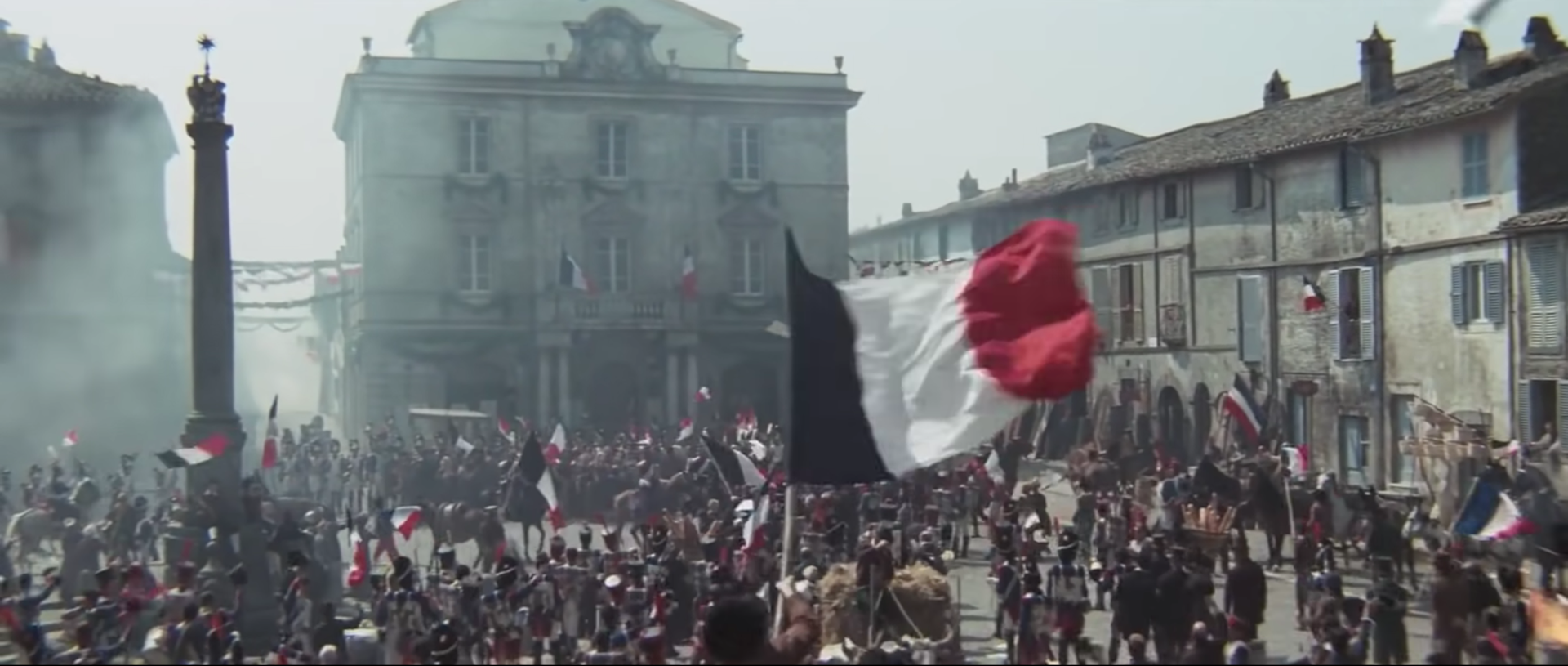
The main reason I want to discuss the first half of the film is because it’s when the actors have the most time to shine. Everyone only talks about the big battle sequence, which is a shame because Christopher Plummer (Duke of Wellington) and Daniel O’Herlihy (Marshal Ney) give wonderful performances, and Rod Steiger steals the entire movie as Napoleon.
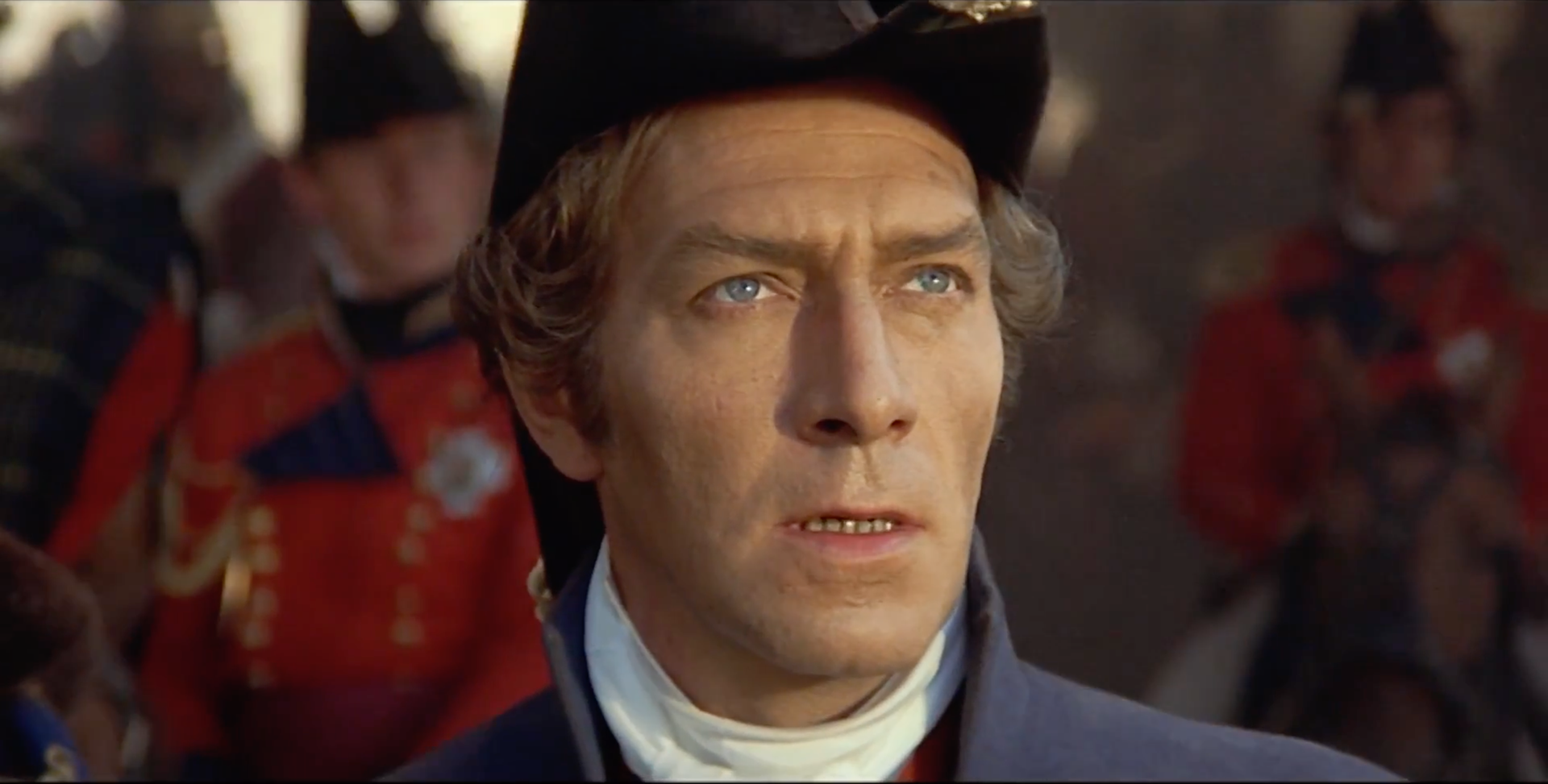
Christopher Plummer as the Duke of Wellington
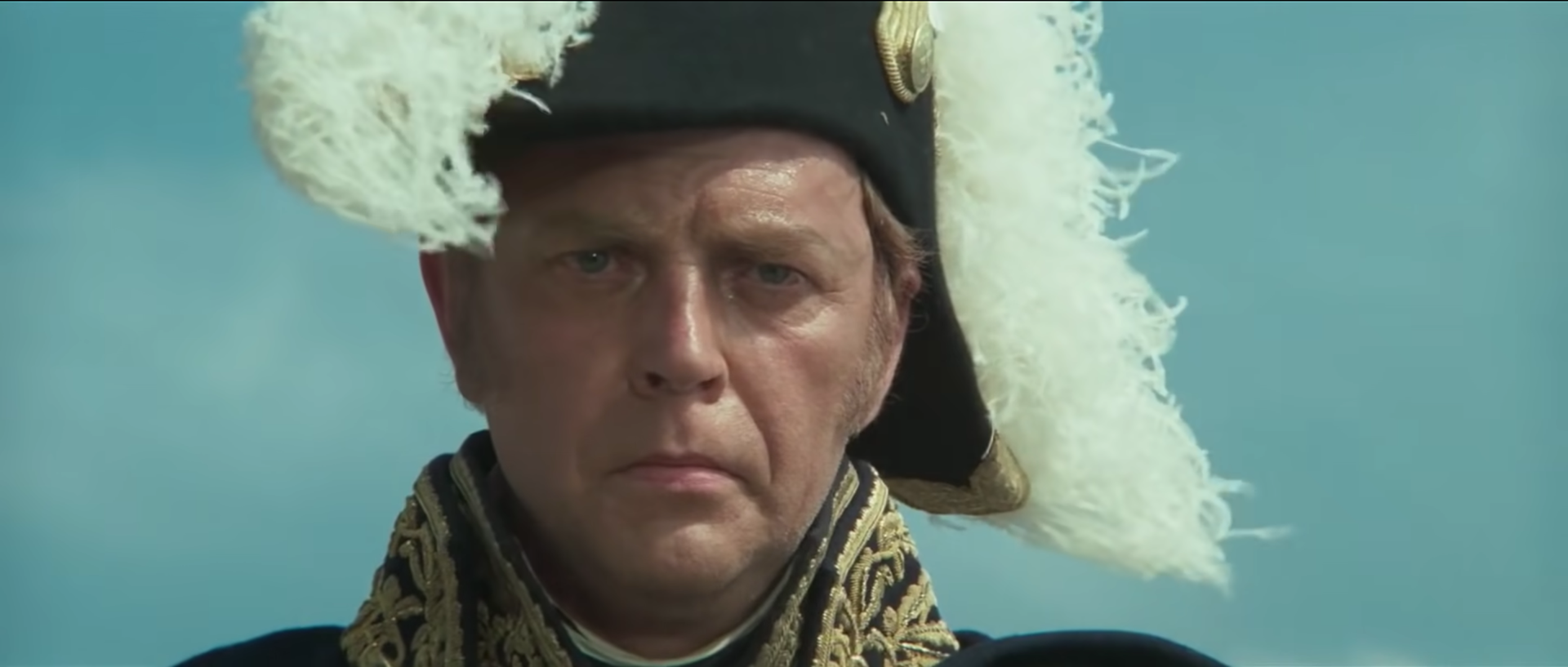
Daniel O'Herlihy as Marshal Ney
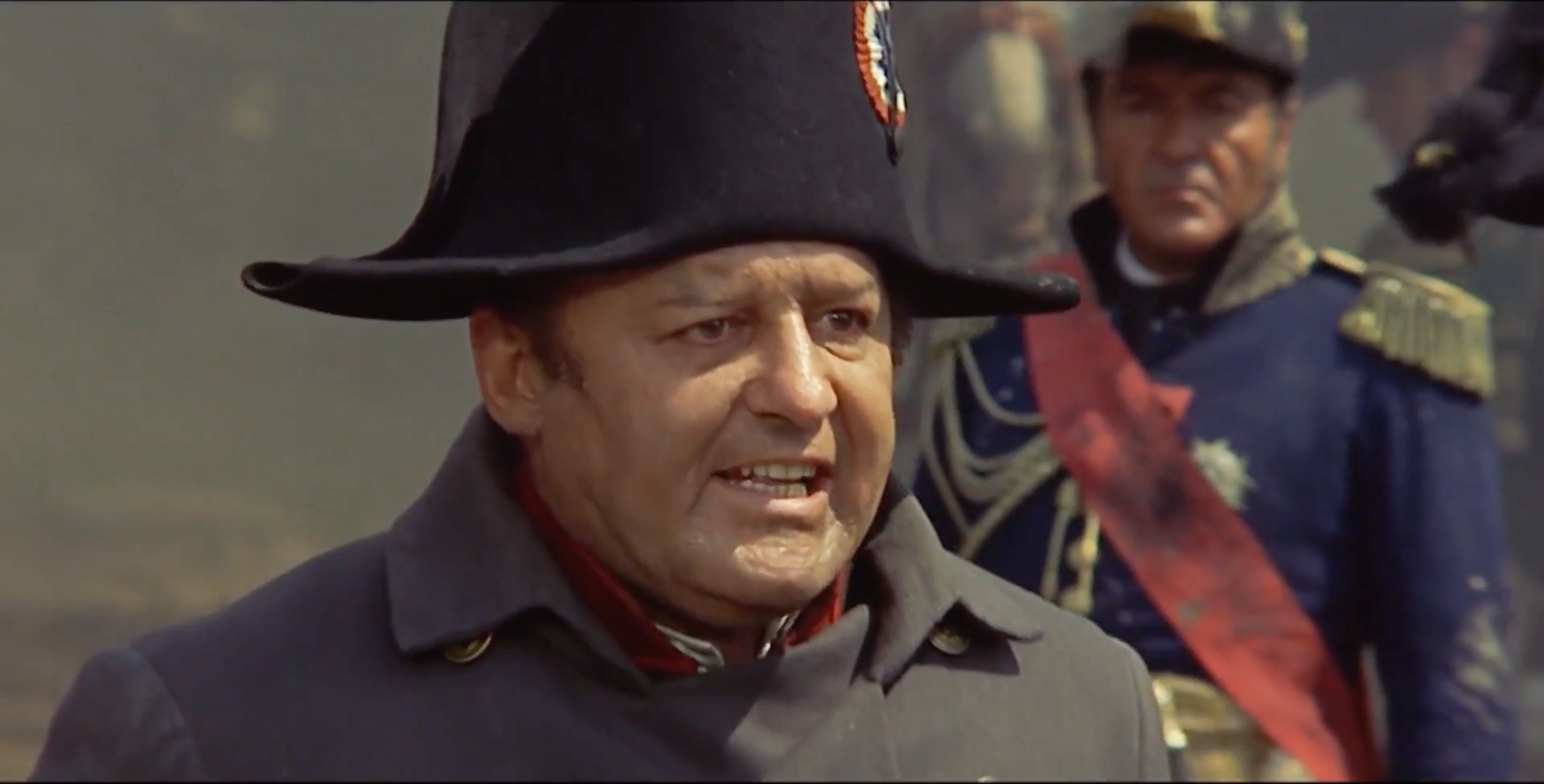
Rod Steiger as Napoleon
For me, the entire movie belongs to Rod Steiger, and he’s the main reason I keep re-watching it. Part of that is my own bias towards him: in my opinion he easily ranks among the top 5 greatest male actors of all time. I’ve read other reviews stating Rod Steiger’s performance as Napoleon is too over-the-top, unrealistic, he isn’t convincing as the emperor, and his New York accent is distracting. I wholeheartedly disagree. Rod Steiger gives, in my opinion, the best characterization of Napoleon in film history. Yes, even better than Marlon Brando’s portrayal (I know it’s sacrilege).
Let's get his accent out of the way. Steiger was the only American (besides Orson Welles) cast in Waterloo, and yes, his native New York accent is noticeable and he doesn't sound like any one else in the cast. I think this works to Steiger's advantage because Napoleon never lost his Corsican accent, so it makes sense he'd sound different than everyone else in the movie.
For those who think Steiger is over-the-top, remember this: Napoleon himself was over-the-top. He was known to be very moody and could become enraged over trivial matters if he didn’t get what he wanted. Sometimes Napoleon threw fits just to see how his generals and soldiers would react. He was a man who could go from zero to a hundred in a second, and Steiger wonderfully captures that unpredictability. I mean the man’s screaming in the film’s first 5 minutes, what’s not to love?
And keep in mind, Napoleon became a mythic figure in his own lifetime who made achievements the likes of which hadn’t been seen in the Western World for at least 1400 years. If you showed a picture of him to anyone in the world—be it an official portrait or some drawing of a guy in a bicorn hat—they’d know who it is. Time Magazine ranked Napoleon as the second most significant figure in history behind Jesus.
Such a monumental figure deserves a larger-than-life portrayal. Yes, Steiger can be a bit over-the-top at times, especially in the scene where he dictates letters; though part of that is the camerawork, I mean do we really need Napoleon to break the Fourth Wall?
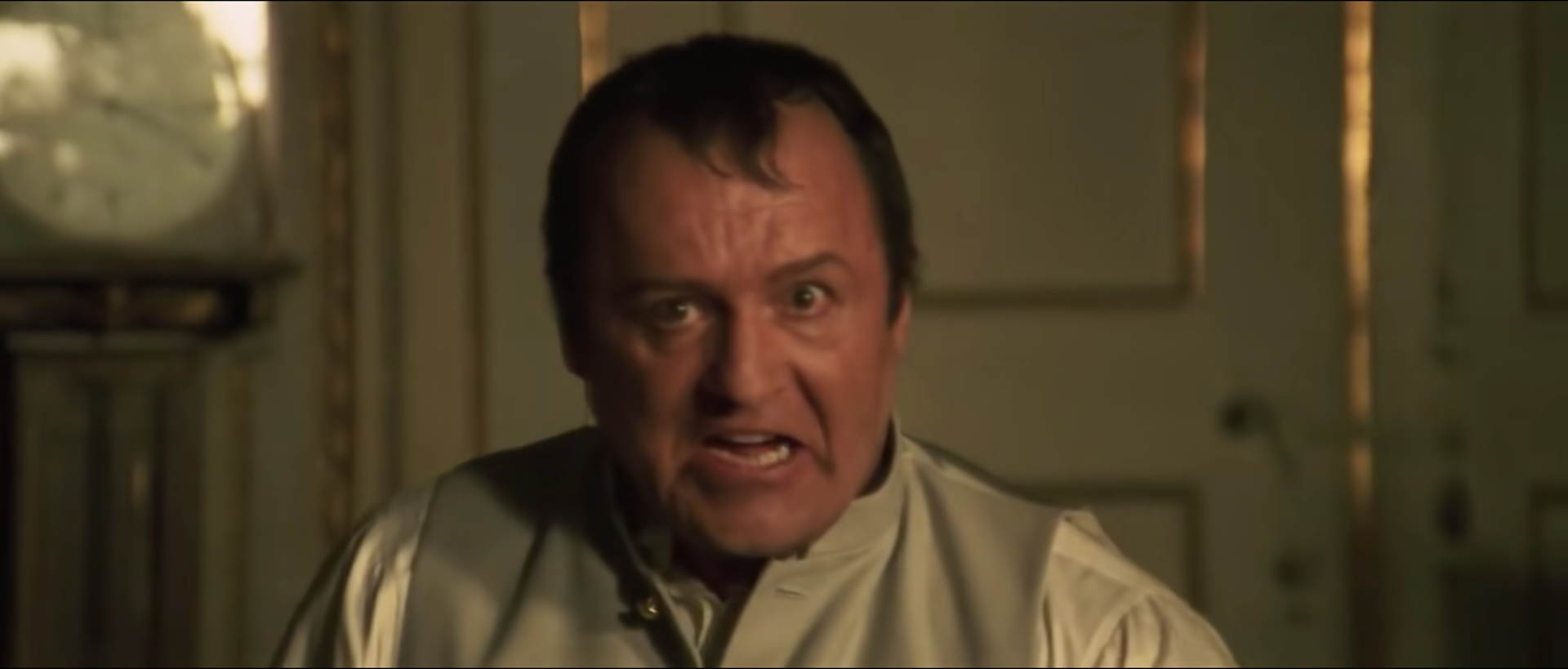
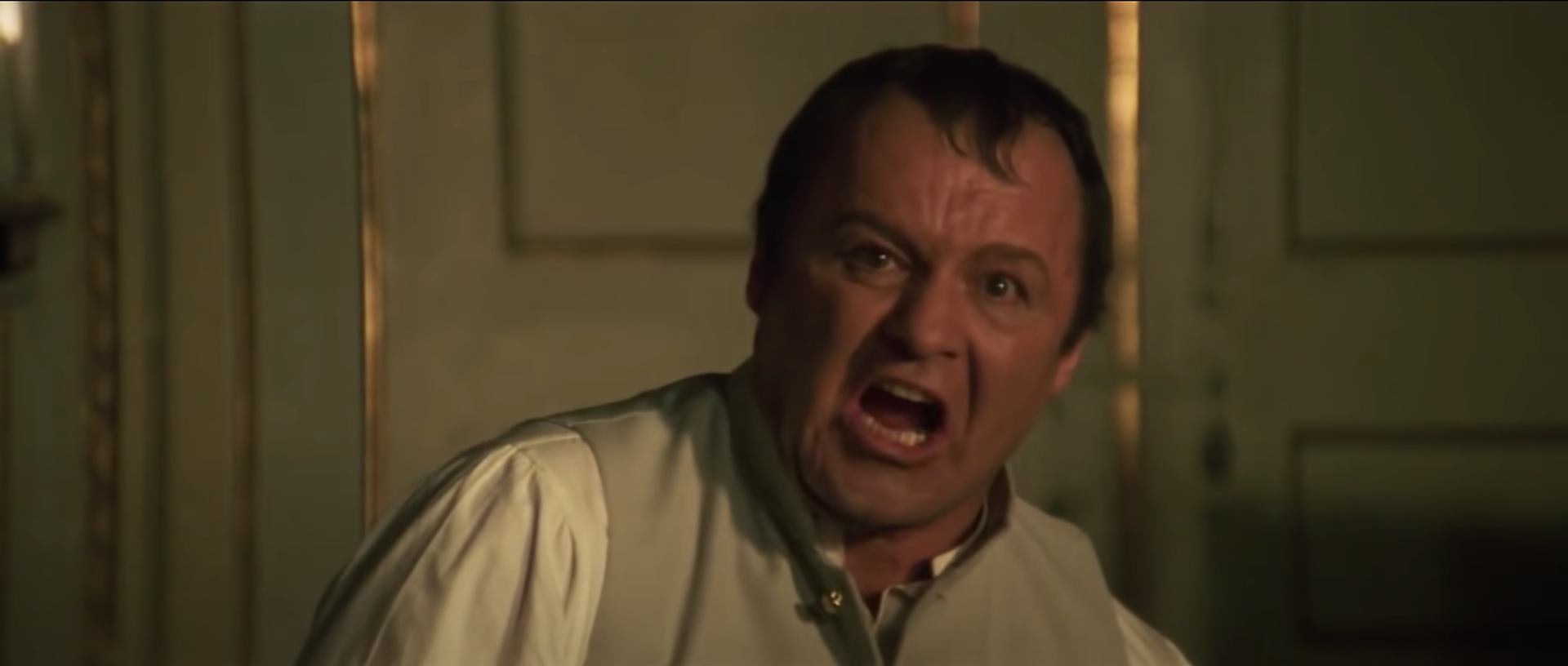
What made Steiger such an amazing actor is he could be over-the-top and truthful at the same time. For those of you who’ve never taken an acting class, that’s incredibly difficult, but Steiger makes it look effortless. It’s even more impressive when one learns that Steiger was miserable playing Napoleon due to his unhappy personal life. He was in the process of divorcing his wife Claire Bloom and spent a lot of time in his room getting drunk. He also had to reshoot the emotional scene where Napoleon says goodbye to his Old Guard because the camera ran out of film.
It’s important to note that Steiger is portraying Napoleon at a time when the emperor was a shadow of his former self. By 1814, Bonaparte was no longer regarded as the unstoppable genius he’d been in the previous decade. Paris was surrounded by invading armies of Europe. Napoleon's once lean, athletic body was now large and overweight. His health had begun to decline (we get a few glimpses of his failing health in the movie) and would continue to do so until his death. He suffered from severe stomach pains, believed to be duodenitis, and it’s speculated he had hemorrhoids during the Battle of Waterloo.
Steiger plays Napoleon beautifully as a man past his prime, and he nails the look. If he had blue eyes and a different nose, he’d be the spitting image of the emperor. I think it’s the closest we’ll get to a life-like interpretation of Napoleon on-screen.
What we think Napoleon looked like in 1814, well past his prime. This painting by Paul Delaroche was completed in the 1840s, 20 years after Napoleon's death.
Next, we have the always-amazing Christopher Plummer as the Duke of Wellington. Plummer’s portrayal is a great foil for Napoleon. He plays Wellington with a calm, poised, confident (almost cocky) demeanor which wonderfully balances Steiger’s histrionic performance. His best moments come towards the end during Ney’s cavalry charge when he sees the amount of death and destruction the battle is causing. Plummer conveys vulnerability and disgust at the bloodshed. He has the same reaction when the Old Guard refuses to surrender and are shot.
Although he isn’t third-billed, Daniel O’Herlihy’s Marshal Ney easily gets the most screen time of all the supporting characters. And that makes me happy because O’Herlihy was such an underrated actor. He was never really cast in main roles but always gave great performances and added gravitas to every film he appeared in. Waterloo is no exception. His performance as Marshal Ney is filled with solemnity, dignity, and grace in his quieter scenes with Napoleon, but also fiery passion, courage, and enthusiasm on the battlefield. He and Steiger complement each other well, especially in the film’s first half hour. I’d watch an entire movie just with him and Steiger because O’Herlihy doesn’t get nearly enough screen time in this film.
I’ll give shout-outs to Orson Welles as Louis XVIII and Jack Hawkins as Sir Thomas Picton. They’re prominently billed, but the two of them basically have cameos. There’s nothing to unpack about their performances, but Welles and Hawkins are always a welcome addition due to screen presence alone.
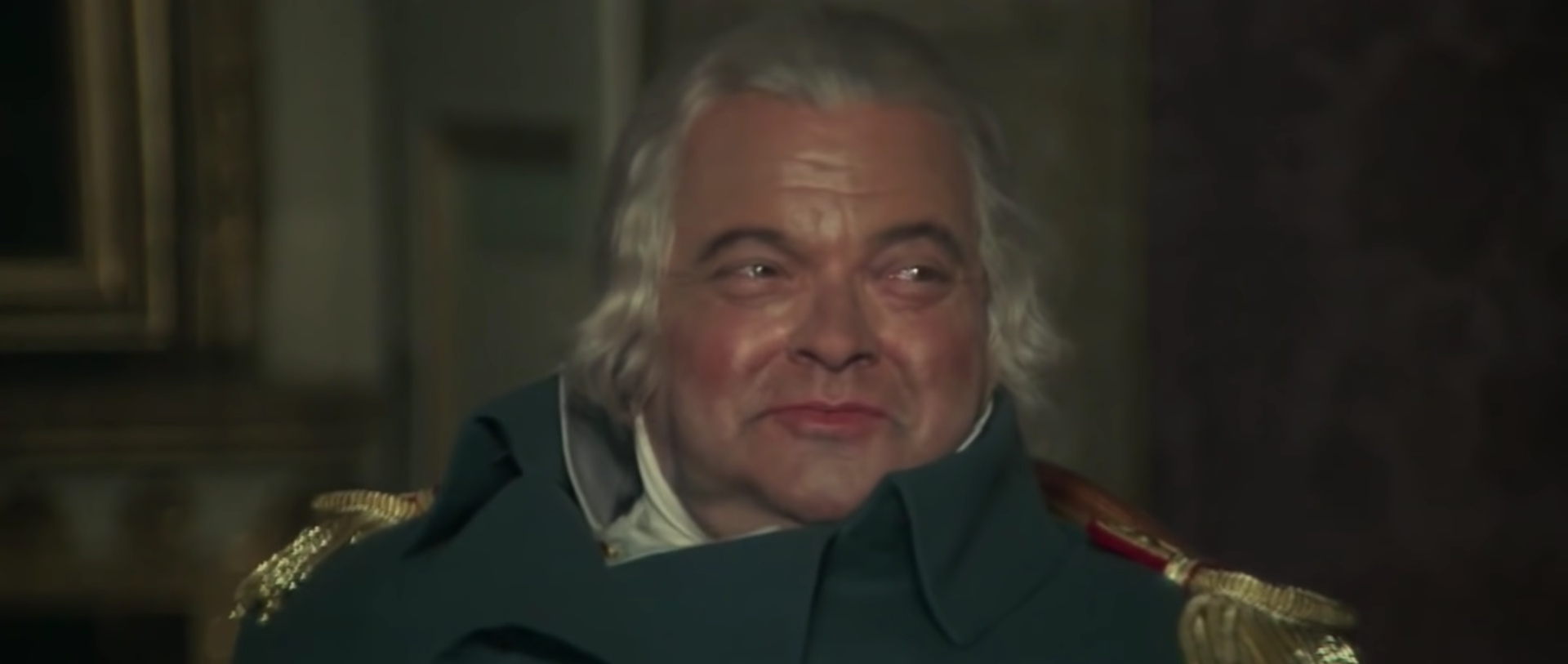
Orson Welles as Louis XVIII
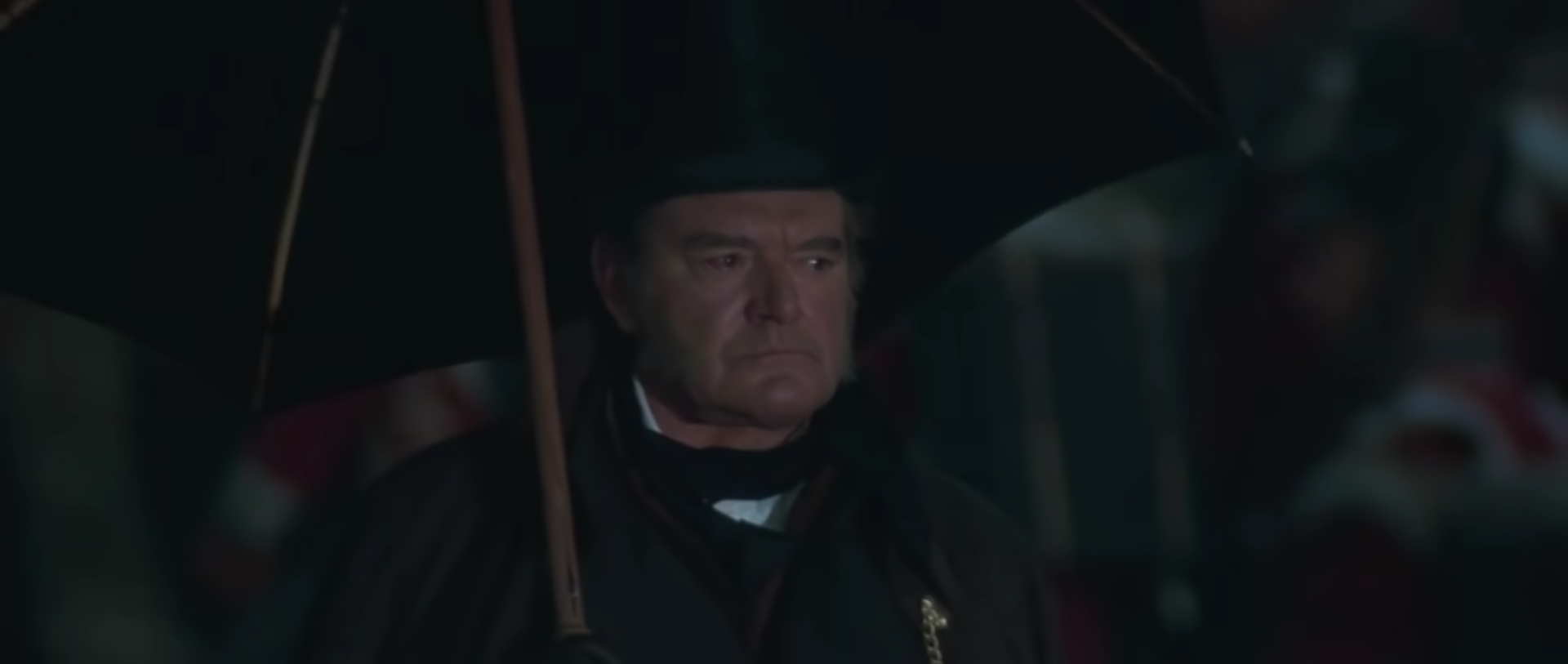
Jack Hawkins as Sir Thomas Picton
There’s clearly a lot to love about Waterloo. So, what doesn’t work? For me, the big issues are lack of a protagonist, poor pacing, and the editing and cinematography during the battle scenes. I know that last point contradicts what I wrote earlier, but I’ll explain.
Yes, the camerawork showcasing the Battle of Waterloo is among the finest I’ve ever seen on film, but at times it feels too removed. I understand Bondarchuk wants us as the audience to see thousands of extras but showing us thousands of people fighting from a distance takes us out of the experience. The aerial shots are amazing on a technical level and unfortunately, we’ll never see anything like them again in today’s CGI-ridden landscape. The problem is they aren’t very entertaining to watch.
A battle sequence should shove the audience right in the middle of the action. Films like Ran, Braveheart, or Saving Private Ryan take us into the battle itself. The main problem is that there are too many extras; having to film thousands and thousands of people forces the shots to remain static. The camera stays on shots for too long and some of the editing is choppy. The result feels like we’re watching a re-enactment instead of an epic film.
I think a good comparison to make is with Chimes At Midnight, directed by Orson Welles in 1965. That film has one of the best battle scenes in film history and only uses a few dozen extras. The reason Welles’s battle scene works so well is the camera cuts and pans so quickly, the audience has just enough time to register what’s happening on screen. Battles are very chaotic to say the least. If Bondarchuk had made more cuts and pans instead of keeping the camera static, the second half would be more immersive.
The only exception to this is Ney’s cavalry charge. Part of that is due to Daniel O’Herlihy’s performance and Nina Rota’s score. But it’s also one of the only times the camera cuts somewhat quickly and we’re thrown into the battle: we get close-ups of horses collapsing, people getting shot, even a little hand-to-hand combat. It’s chaotic.
Pacing is another issue, particularly during the first hour. The first thirty-five minutes are great, but once we go away from France over to the Duchess of Richmond’s Ball, the pace jolts to a halt. I understand Bondarchuk wanted to contrast the serenity of the ball with the havoc of the battle, but it plays out too slowly. There are other moments such as the meetings between generals the night before the battle, but the pacing picks up during the battle itself. However, that brings us back to the editing and cinematography, which slows the pace down and makes the film drag.
For me the biggest problem isn’t pacing or cinematography, but lack of a proper protagonist. The film takes a very nuanced approach and shows us both leaders, Napoleon and Wellington, but never takes a stand on which one it supports. I completely understand that history is way more sublte than a simple hero vs. villain story, but this is a dramatic adaptation. We as the audience need someone to root for, which the film doesn’t provide. Napoleon gets the most screen time and we’re shown how beloved he is in France, but that’s offset by the Duchess of Richmond’s Ball which makes us sympathize with Wellington and the British. I always root for Napoleon, but that has more to do with Steiger’s performance.
Despite the pacing issues and lack of protagonist, this movie is a technical masterpiece. For all my complaints, there’s a such a sense of realism and passion that makes this a truly special film. Rotten Tomatoes gave this movie a 27% rating, which is unjust and a little cruel. For what it is, Waterloo is a faithful recreation of events that boasts great cinematography, a rousing musical score, and amazing performances. Its poor pacing, re-enactment style battle scenes, and editing, however, causes it to fall short of greatness, which is a shame.